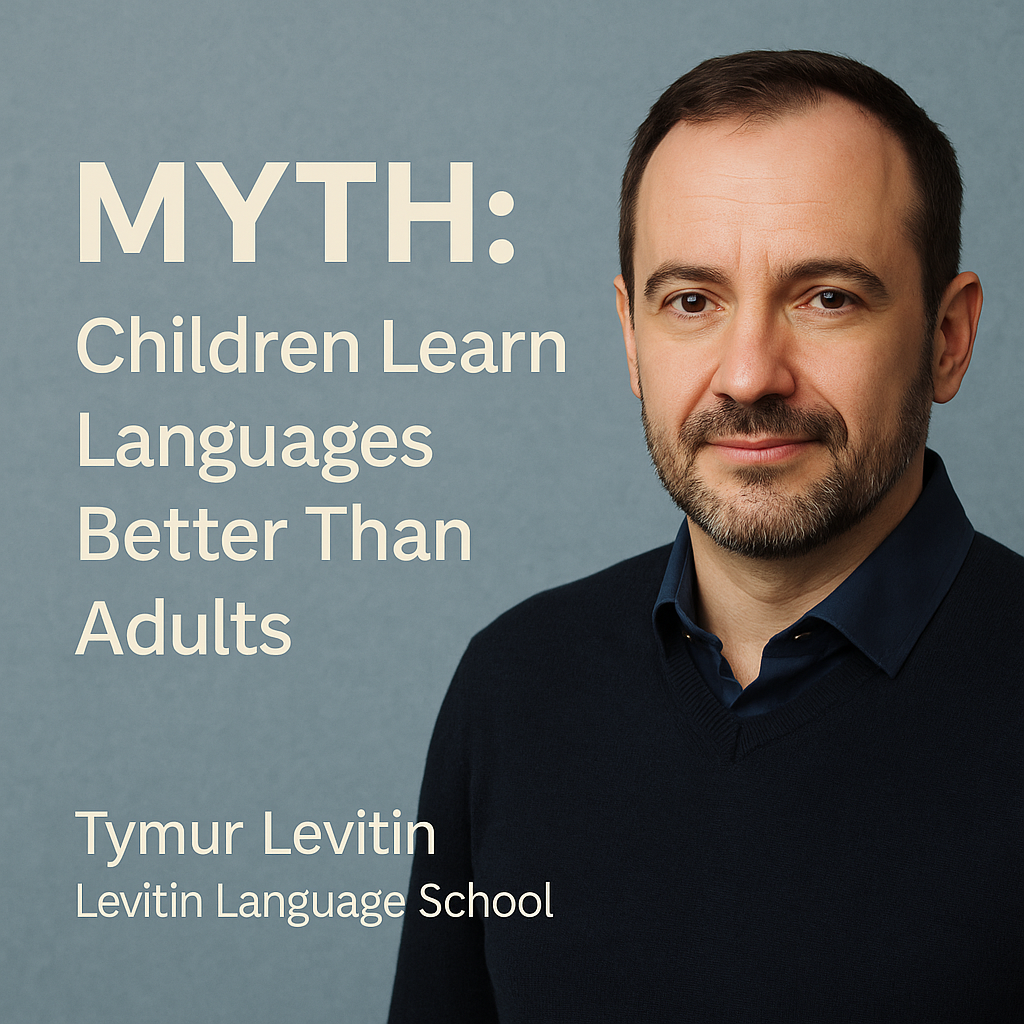„Ein einziges Wort kann eine ganze Haltung verraten. ‘Doch’ ist kein Ja — es ist ein innerer Aufstand.“
— Tymur Levitin
Choose your language: https://levitinlanguageschool.com/#languages
The misunderstood power of “doch”
If you’re learning German, you’ve probably heard the word “doch” thrown around in conversations, TV shows, or even classroom debates. And you might have asked yourself:
- Does it mean “yes”?
- Is it like “but”?
- Why do Germans say it so often?
The truth is: “doch” doesn’t translate neatly into any one English word. But it plays a central role in the emotional, logical, and interactive flow of German speech.
Let’s break it down.
“Doch” as contradiction: the clearest case
The most famous and teachable usage of “doch” is when you contradict a negative statement.
Example 1:
- “Du kommst nicht.” — *”You’re not coming.”
- “Doch!” — *”Yes, I am!”
Here, “doch” functions as a direct contradiction of the previous negative. It’s a strong, one-word rebuttal.
Compare with English:
- A: “You’re not hungry.”
- B: “Yes, I am!”
But in German, you can’t just say “Ja!” in this case — that would agree with the statement.
So, German gives you a third option:
- Ja — yes
- Nein — no
- Doch — yes (in contradiction to a negative)
It’s a third pole of logic.
“Doch” softens imperatives: polite but firm
In everyday speech, “doch” often softens commands or adds emotional nuance.
Example 2:
- Komm doch mit! — “Come along, won’t you?”
- Geh doch schlafen! — “Just go to sleep, okay?”
Without “doch,” these could sound abrupt:
- Komm mit! — “Come with me!”
- Geh schlafen! — “Go to sleep!”
So what does “doch” add?
- A friendly tone
- A gentle nudge
- A shared understanding or plea
It’s less about the action and more about how you say it.
“Doch” adds contrast or emotion to statements
Sometimes “doch” expresses surprise, frustration, or reassurance.
Example 3:
- Er hat doch gesagt, dass er kommt! — “But he DID say he was coming!”
Here, “doch” emphasizes the contradiction between expectation and reality.
It can express:
- annoyance
- insistence
- emotional emphasis
Example 4:
- Du magst das doch, oder? — “You do like that, don’t you?”
Here, it’s confirmation with a hint of doubt. You believe something is true, but want the listener to confirm.
Hidden uses: modal particles and advanced patterns
In spoken German, “doch” often shows up as a modal particle — a tiny word that changes the tone, but not the content, of the sentence.
Think of it like the German version of English intonation:
- “Well, I thought so.”
- “You did say that, didn’t you?”
- “Go on, then!”
Examples of modal “doch”:
- Das ist doch klar! — “Well, that’s obvious!”
- Ich habe es dir doch gesagt. — “I told you so!”
- Du weißt das doch. — “Come on, you know that.”
It conveys attitude, tone, and emotional framing. It’s untranslatable, but essential for sounding natural.
“Doch” + “ja”: nuanced combinations
You’ll often hear combinations like:
- “Das ist ja doch passiert.” — “So it DID happen after all.”
- “Ich hab’s ja doch gewusst!” — “I KNEW it would happen!”
Here, “ja” adds the sense of shared knowledge, while “doch” confirms the unexpected truth.
These combinations are emotionally rich and often confusing for learners. But they’re key to natural fluency.
When NOT to use “doch”
Don’t throw “doch” into every sentence. Some mistakes:
- ❌ “Ich bin doch müde.” (if not contradicting anything)
- ❌ “Ich habe doch Hunger.” (random insertion)
Use it when:
- correcting a negative
- adding emotional contrast
- softening commands
- reinforcing known facts
If you’re unsure — listen to native speakers. Or read dialogues. You’ll begin to feel when “doch” belongs.
Cultural insight: The German love of nuance
Germans value precision, even in small words. “Doch” is proof.
Where other languages gloss over disagreement, German makes room for:
- Gentle contradiction
- Emotional insistence
- Polite urging
To master “doch” is to understand more than grammar. It’s to speak with sensitivity, awareness, and rhythm.
Related reading from our blog
- Warum sagt der Lehrer ‘meistens’?
- Meistens vs am meisten — What’s the Real Difference?
- Was ist ‘richtiges’ Deutsch?
- Pause ist nicht Stillstand
📚 Author’s Column — The Language I Live
Language. Identity. Choice. Meaning.
Tymur Levitin — founder, teacher, and translator
© Tymur Levitin
🔗 https://levitinlanguageschool.com
🔗 https://languagelearnings.com
























